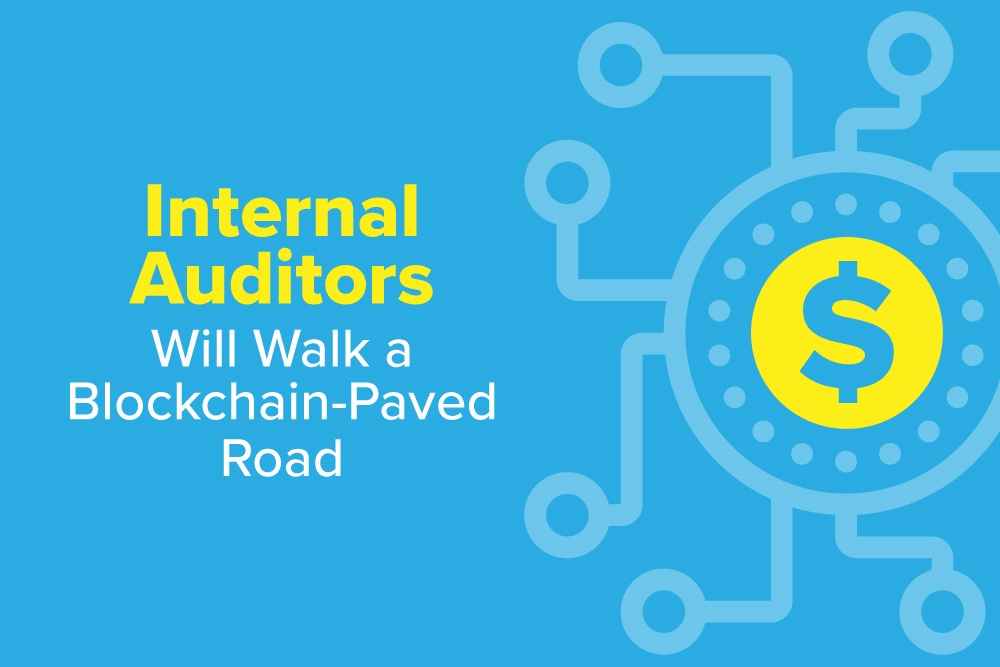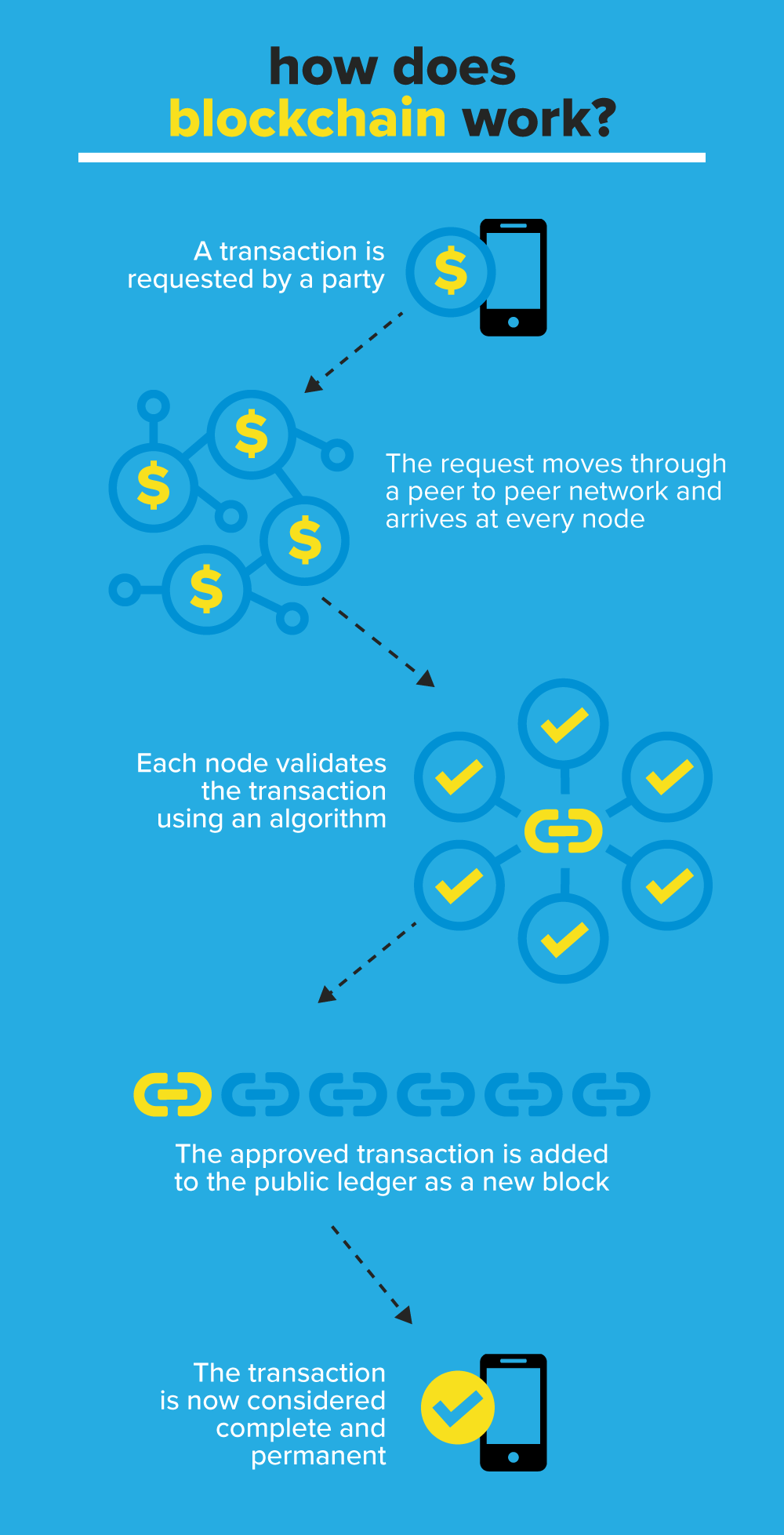Sometimes things don’t go according to schedule or plans, and the world is better off because of it. Such is the case with the rise of blockchain technology and, perhaps as a surprise to its pioneers, its emergence as one of the most genuinely transformative innovations to follow the financial crisis. Put another way, while the cryptocurrencies make the splashy headlines, it’s the blockchain technology that sprang them that’s changing the way the world conducts business. Go figure.

Of course, blockchain itself is industry agnostic, lending its utility to the entire spectrum of commerce and applications. It only figures, then, that blockchain is already taking root in the fertile soil of accounting and finance, lending new convenience, security, and function as it goes. Naturally, in the least surprising bit of information you’ll read today, Embark is already well-acquainted with the useful wonders brought about by blockchain, how it affects accounting and auditors, and what the future holds for blockchain-driven accounting functions.
Blockchain Basics
For those of you Embarkites that might have a vague understanding of blockchain but could use a primer, you’re in luck. Simply put, blockchain is a form of distributed ledger technology that encrypts, groups, and organizes data across a series of interlinked “blocks” that are simultaneously maintained across a network of connected computers. Thanks to a system of checks and balances, blockchain verifies the validity of the data as it goes. Users can write new information onto a blockchain, but previous information can't be edited or changed in any way. The technology makes data unassailable which fosters the trust of users so important in allowing the system to succeed and spread.

What Blockchain Means for Internal Auditors
So, what, exactly, do all of these complicated sounding words and concepts mean for the auditing space? Well, we're glad you asked. Some foresee blockchain technology as a substitute for a financial statement audit altogether given its ability to verify transactions which, of course, is an essential building block of a financial statement audit. However, Embark urges you to have your auditors take a deep, cleansing breath because their job security is nowhere near being jeopardized.
While blockchain might be an extraordinarily useful tool for the audit process, it's unlikely ever to become a substitute for it since many transactions within the financials are based on estimates. Those estimates can and do differ from historical costs, meaning auditors will still need to audit those estimates, even when the actual transactions are recorded on the blockchain ledger. Still, blockchain is capable of making an auditor's life easier by providing easy access to verifiable data, assuming sufficient controls are implemented to ensure reliability of that data.
Long story short, auditors should prepare for the possible effects that broader adoption of both private and public blockchains might have, particularly as they pertain to a new source of data for the financials. Furthermore, auditors need to thoroughly understand an organization's accounting policies for their digital assets and liabilities, neither of which are directly addressed in foreign reporting standards or US GAAP. It will be up to the auditor to determine the best way to leverage the many benefits afforded by blockchain technologies and how organizations deploy it to the greatest effect.
In coming years, auditors are likely to have a love-hate relationship with blockchain, realizing many improved efficiencies in an audit’s data gathering process once clients begin to readily adopt the technology while, unfortunately, grimacing at the additional complexities it creates. Between easier access to data and the possibility of automated audit routines stemming directly from blockchain, auditors are best served embracing the technology and closely monitoring it as it evolves to serve the needs of an incredibly dynamic business world. Otherwise, there's an excellent chance that dynamic world will pass them by.
Although, as previously discussed, we don't see blockchain replacing financial reporting and statement auditing in the near future, auditors must still become fluent in the basics of the technology as it becomes more pervasive in their clients' IT systems and business processes. When needed, firms will have to bring blockchain experts into the process to audit the intricate technical risks associated with the technology.
A Bird’s Eye View Down the Blockchain Highway
No matter what you think of the turbulent crypto seas, there’s no denying the fact that blockchain itself is quickly immersing itself into every corner of commerce. That fact shouldn’t be confused for a well-charted course, however, since blockchain’s future is anything but predetermined. Even if we had a crystal ball, Embark would still feel a bit queasy predicting blockchain’s exact path in auditing – or even accounting’s – future environment and norms. But that, of course, has never stopped us from providing our two cents.
While companies and industries will continue to invest into blockchain technologies, even without a clear game plan in place, Embark feels comfortable making one specific promise about blockchain – it's only going to get bigger. Given that inevitability, companies must understand the different facets of the technology to prevent themselves from being mired in mediocrity once the applications become better defined and quickly entrench themselves into day-to-day operations. Like investing in a penny stock that blossoms into a titan of industry, companies that can afford to be early adopters stand to see exponential returns if the technology is executed properly.
So Can Embark Help You Utilize Blockchain?
We’re not going to be cyber rude and start typing in all caps but, suffice it to say, the answer to that question is a resounding yes. While Embark can’t set up the technology for you, we can certainly help you get the very most out of it and maximize the utility it brings to your organization in a variety of ways, which include:
- Maintaining an irrefutable and unaltered record of data stored through a decentralized network
- Having complete confidence in data that is independently verified and audit-able
- Exchanging money, property, or anything of value in a transparent manner without conflict or the need for services of a middleman.
- Reducing redundancy and delays with a distributed electronic ledger that requires transactions to be processed only once
So there you have it. Blockchain might still be a bit of a quandary, a revolutionary technology that can proceed in a few different directions. That doesn’t mean you should delay understanding and embracing it, however, as its continued march across industry is inevitable. Let Embark help lead the way and rely on our bottomless expertise on blockchain to find how it best serves your organization’s goals. The future is nigh, so don’t let it skip your house and leave you in the lurch.








